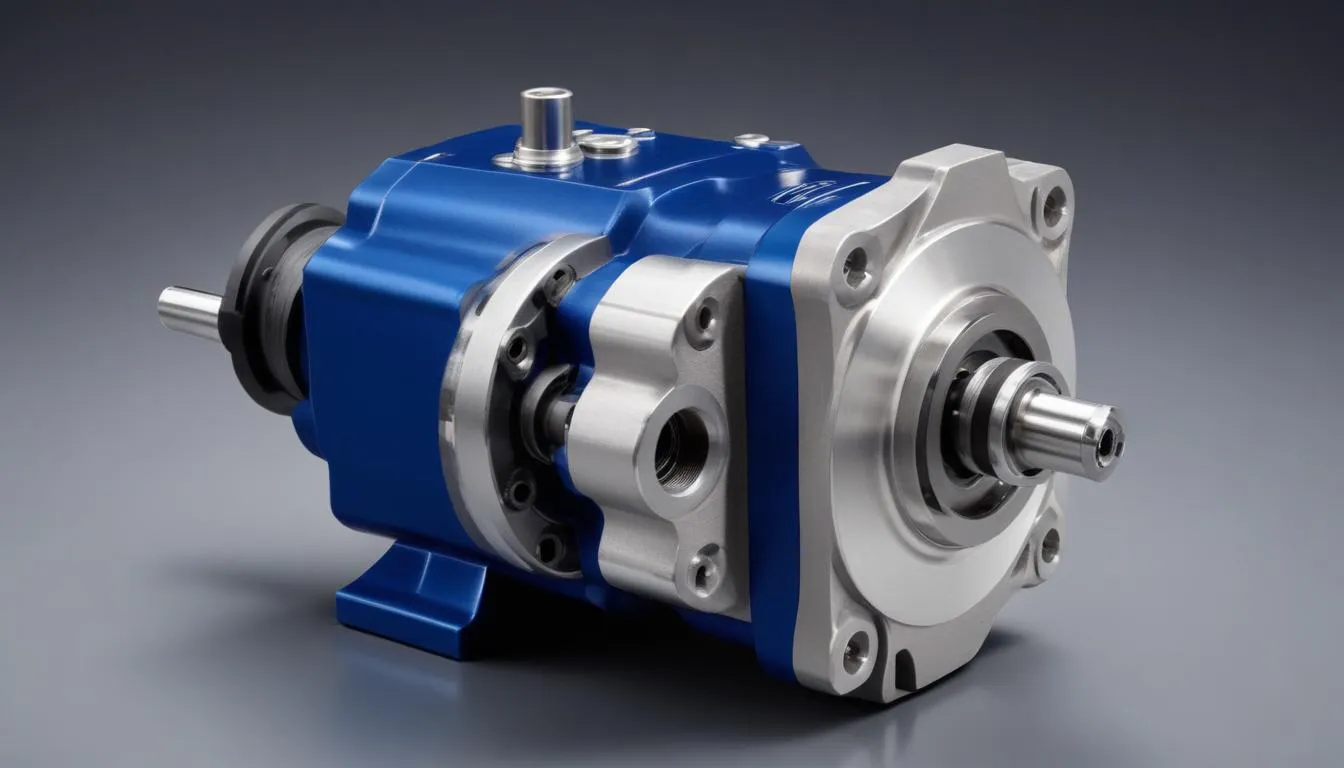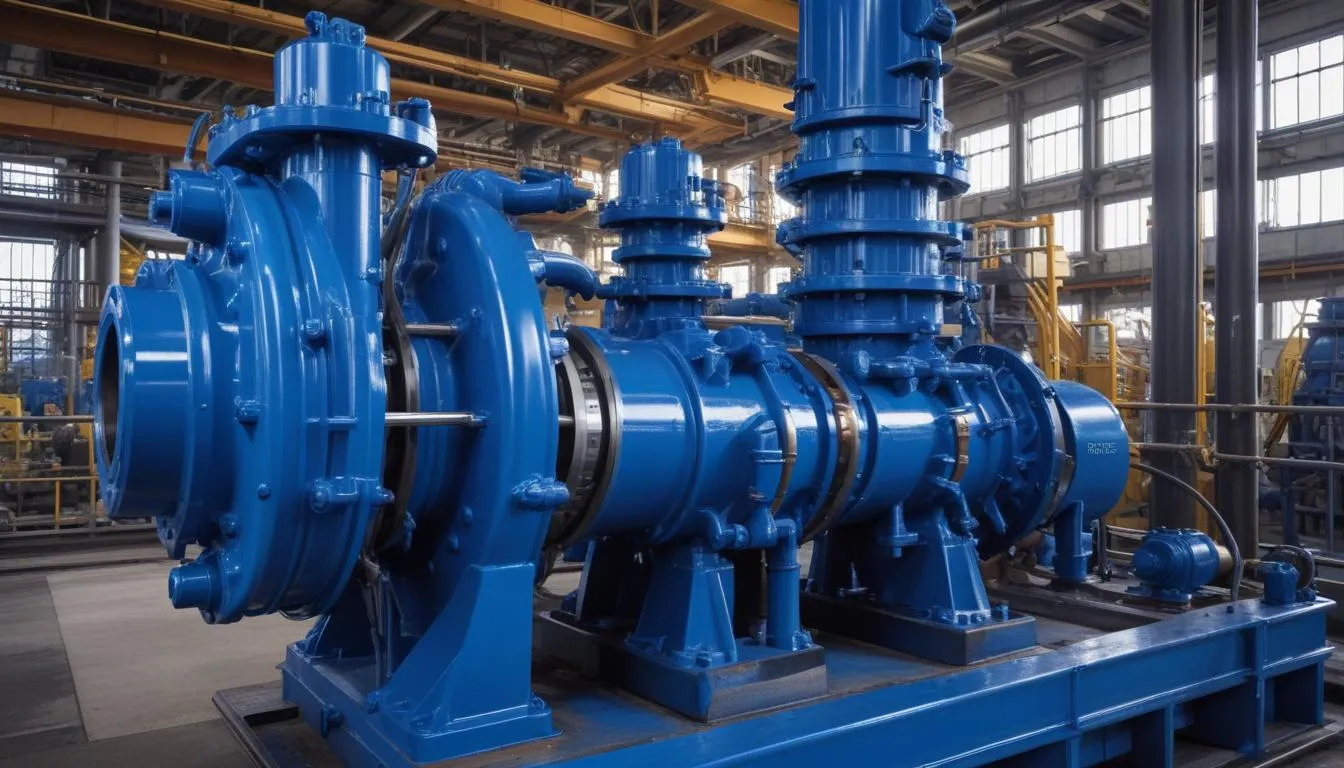 Specialized pumps are designed to handle specific fluids or operate under unique conditions that standard pumps cannot manage efficiently. These pumps differ significantly in design, mechanism, and application, making them essential for various functions across multiple industries. The effectiveness of a specialized pump lies in its tailored construction, which enables it to handle particular requirements such as viscosity, pressure, flow rate, or the nature of the fluid being pumped.
Specialized pumps are designed to handle specific fluids or operate under unique conditions that standard pumps cannot manage efficiently. These pumps differ significantly in design, mechanism, and application, making them essential for various functions across multiple industries. The effectiveness of a specialized pump lies in its tailored construction, which enables it to handle particular requirements such as viscosity, pressure, flow rate, or the nature of the fluid being pumped.
There are several types of specialized pumps, each suited for different applications. A few key categories include:
- Positive Displacement Pumps: These pumps move fluid by trapping a fixed amount in a chamber and then forcing it into the discharge pipe. They are ideal for high-viscosity fluids and applications requiring precise dosage. Common types include gear pumps, diaphragm pumps, and piston pumps.
- Centrifugal Pumps: Designed to transfer fluids using rotational energy. Specialized centrifugal pumps are used in applications requiring high flow rates and are often found in the chemical and water treatment industries. Variations include magnetic drive pumps and self-priming pumps.
- Diaphragm Pumps: These are commonly used for pumping corrosive or viscous fluids. The diaphragm mechanism allows for safe handling of hazardous materials without leakage. They can be air-operated, electric, or hydraulic.
- Peristaltic Pumps: Ideal for transferring delicate fluids, such as biological samples, these pumps work by compressing and releasing a flexible tube. This design prevents contamination and is commonly used in pharmaceutical and laboratory applications.
- Gear Pumps: Used mainly in the automotive and oil industries, gear pumps efficiently handle high-pressure and high-viscosity fluids, making them suitable for lubricants and fuels.
- Progressive Cavity Pumps: These are defined by their ability to handle high-viscosity fluids gently and are often used in the food processing or wastewater treatment industries.
Each of these specialized pump types is engineered to perform effectively under specific conditions and for particular applications, making them invaluable for tasks where standard pumps would fail. Understanding the distinct features and operational mechanisms of these pumps is crucial for selecting the appropriate model for specific industrial needs.
Advantages and Disadvantages
Specialized pumps offer numerous advantages and disadvantages that affect their performance and suitability for various applications. Understanding these factors is essential for industries that rely on them for critical processes.
One of the primary advantages of specialized pumps is their efficiency in handling specific fluid types and conditions. For instance, positive displacement pumps excel at managing high-viscosity fluids, delivering consistent flow rates regardless of changes in pressure. This reliability makes them ideal in applications that demand precise dosing and control. Additionally, diaphragm pumps are invaluable when dealing with hazardous or corrosive substances, as their design prevents leakage and contamination, enhancing safety in operations.
Another significant advantage lies in the reduced energy costs associated with specialized pumps. Many models are designed with energy-efficient technology, allowing them to operate effectively while consuming less power compared to standard pumps. For example, centrifugal pumps with variable speed drives can adjust flow rates according to demand, leading to substantial energy savings over time.
Furthermore, specialized pumps often come with features tailored to specific industrial applications, which can increase operational performance. For example, peristaltic pumps are highly effective in transporting shear-sensitive fluids without damaging them, making them the preferred choice in the pharmaceutical industry.
However, the use of specialized pumps also presents certain disadvantages. One notable challenge is the higher initial investment cost associated with these pumps. Compared to standard pumps, specialized versions can be more expensive to purchase and install due to their advanced technology and construction. This upfront cost may deter some businesses from integrating them into their processes.
Additionally, maintenance and repair for specialized pumps can be complicated and costly. Many types require specific knowledge and expertise for servicing, and sourcing replacement parts can be more difficult than for conventional pumps. This can lead to longer downtimes in case of maintenance, ultimately affecting productivity.
Moreover, while specialized pumps excel in their designated applications, they may not perform well outside of these parameters. For instance, a diaphragm pump designed for corrosive fluids may not effectively handle non-corrosive substances, limiting its versatility compared to general-purpose pumps.
In summary, the choice of a specialized pump involves weighing its advantages, such as enhanced performance and efficiency, against the disadvantages of higher costs and maintenance complexities. Understanding these factors will help industries make informed decisions that align with their operational needs and budget constraints.
Applications in Various Industries
 Specialized pumps play a critical role in various industries, where their unique designs and capabilities meet specific fluid handling needs. Different sectors utilize these pumps based on their operational requirements, ensuring optimal performance in environments that standard pumps may not be able to handle effectively. Below are some notable applications of specialized pumps in distinct industries:
Specialized pumps play a critical role in various industries, where their unique designs and capabilities meet specific fluid handling needs. Different sectors utilize these pumps based on their operational requirements, ensuring optimal performance in environments that standard pumps may not be able to handle effectively. Below are some notable applications of specialized pumps in distinct industries:
- Oil and Gas Industry: In the exploration and production of oil and gas, positive displacement pumps, such as gear and diaphragm pumps, are commonly employed. They efficiently handle high-viscosity fluids like crude oil and can operate under extreme conditions, including high pressure and temperature. Additionally, these pumps ensure precise control over the transfer of chemicals for various processes, such as fracturing and refining.
- Chemical Processing: The chemical industry heavily relies on specialized pumps, particularly centrifugal and diaphragm pumps, for transporting corrosive materials safely. These pumps are designed with materials that resist chemical degradation, allowing them to handle aggressive fluids without leaking. Furthermore, their ability to provide consistent flow rates is essential for maintaining the integrity of chemical reactions during production.
- Water and Wastewater Treatment: Specialized pumps are crucial in water treatment facilities for moving water and wastewater through different stages of treatment. Centrifugal pumps are commonly used for their capacity to handle large volumes of water efficiently. Additionally, progressive cavity pumps are often employed in sludge handling, where they expertly manage high-viscosity waste while maintaining a gentle transfer to avoid damaging the materials.
- Pharmaceutical and Biotechnology: In the pharmaceutical sector, peristaltic pumps are widely utilized due to their ability to handle delicate fluids like biological samples and pharmaceuticals. Their design prevents contamination, ensuring the integrity of sensitive compounds during transfer. Diaphragm pumps also find applications in this industry, facilitating the movement of corrosive cleaning agents and other hazardous materials.
- Food and Beverage Industry: Specialized pumps, such as positive displacement and progressive cavity pumps, are essential in food processing and beverage production. These pumps are designed to handle viscous products, like sauces and syrups, and can maintain hygiene standards necessary for food safety. Their gentle pumping action also preserves the quality of sensitive ingredients, which is critical in maintaining flavor and consistency.
- Mining and Minerals Processing: In mining operations, slurry pumps are used to transport mixtures of water and minerals. These pumps are built to handle abrasive and heavy materials, ensuring reliable movement from mines to processing facilities. With the capability to deal with high solids content, specialized pumps are vital in efficiently transporting mineral slurries without excessive wear.
The efficiency and reliability of specialized pumps in these diverse applications highlight their indispensable role across industries, catering to the unique demands of each sector. By harnessing the capabilities of these pumps, industries can ensure safe and effective fluid transfer, ultimately enhancing productivity and operational effectiveness.